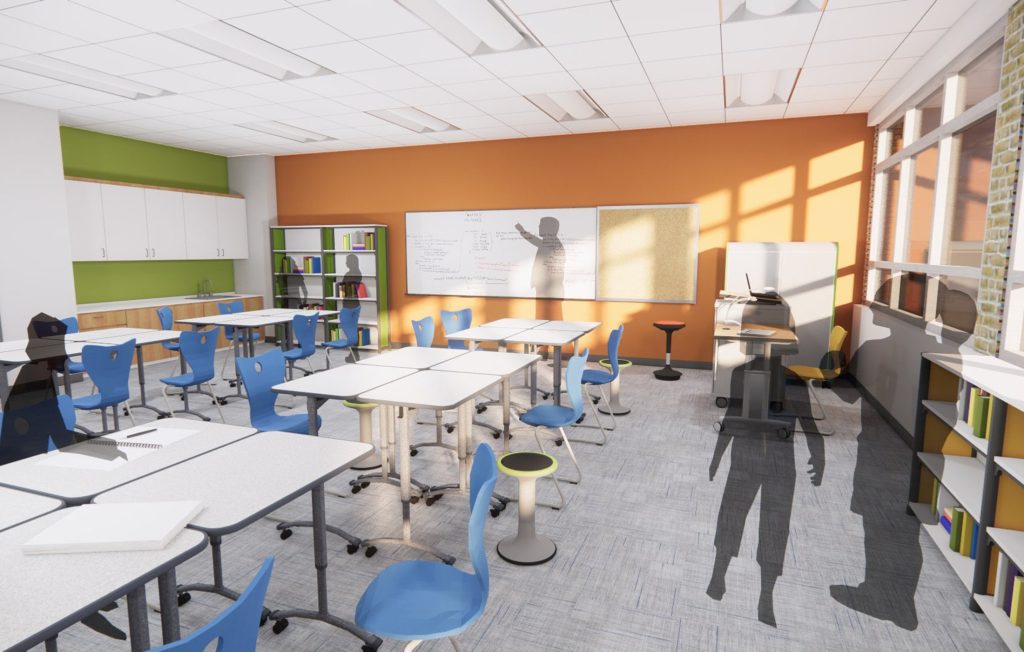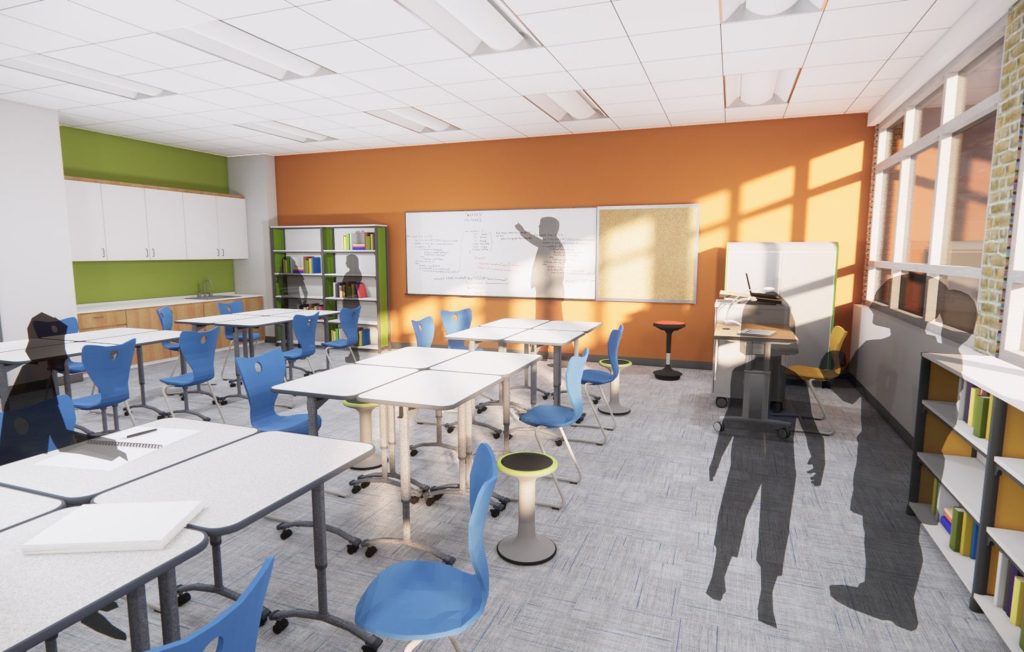.. Reshaping the Future of Learning as Education Meets the Metaverse
Reshaping the Future of Learning as Education Meets the Metaverse
Imagine that you are 10 years old and in history class, but you are not seated on the wooden bench from your school with your elbows on the desk and your palms supporting your droopy head. Instead, you’ve settled into your home’s sofa and donned a unique set of glasses with a headset that will whisk you away to an India ruled by the Mughal emperor Akbar.
This 45-minute records tour, which differs from an ordinary lecture in that it gives a first-hand revel in of that era’s social, cultural, and monetary existence in a digital setting, is positive to captivate you to the fullest. Hello, and welcome to the metavers Due to continuously advancing technology, schooling is likewise destined to change, a fashion increased through the Covid-19 pandemic. Due to the closure of schools, instructional establishments needed to quick undertake new technological answers to host training and educate college students across the world, which made them extra receptive to approaching technological changes
Web3 Development Company thinks that digital innovations like metaverse will experience mass adoption within the next few years, much like how cell phones did. It is only a matter of time before educational institutions begin conducting serious metaverse experiments, ushering in a fresh wave of technological innovation in education.
Different Approach to Education
The newest generation of virtual reality (VR) headsets is the gateway to the metaverse. VR headsets immerse the senses and provide an unparalleled sense of embodied presence.
Users can freely move around a 3D scene and interact with the environment with their hands, just like they would in real life. VR technology has developed to the point where it is no longer included in Gartner’s hype cycle and is becoming sufficiently accessible (under $300) to close global capability gaps. Even single-player sessions don’t require an internet connection.
VR activates the motor center of the brain and develops muscle memory. VR can train anything, from farming skills to firefighting, in the same way, a flight simulator trains pilots for emergency landings.
Spatial training, such as using the hands and body for tasks that are too dangerous, expensive, inconvenient, or simply impossible to practice in real life, is one skill that plays to the particular strengths of the metaverse.
Other examples include creating and practicing safe and controlled environments for normal and abnormal operations, emergency response, difficult work environments, crucial procedures, and high-consequence events.
Applications of Metaverse in Education
The benefits of the metaverse can be utilized by the education sector in several ways, including:
3D online classrooms
With the rise of online schools and colleges, students are starting to notice a difference between immersive real-world classrooms and those that are virtual. The metaverse can close this gap by building 3D virtual classrooms where students can virtually interact with their classmates and teachers.
This metaverse-powered learning environment allows students from any location to participate and go far beyond what is possible in a traditional classroom.
Digital Education
With the addition of smart classes to school education curricula, students’ learning was enhanced by video projection. The metaverse development aims to upgrade these classrooms by enabling students to become fully immersed in these videos.
It gives them a place to experiment, fail, and learn from mistakes in areas that call for real-world experiments. 3D virtual learning can also be used in physics classes to achieve learning objectives.
Campus Activities Online
Students can participate in extracurricular activities like sports and the arts virtually, thanks to the metaverse. Similar to physical campus activities, students can participate in various enjoyable activities like joining a music or math club. Additionally, they can stroll through their online campus without leaving their home.
Interdisciplinarity in Education
The metaverse has the power to lower subject barriers and encourage interdisciplinary study.
Simulating Situations from Real-Life
In the future, we might see subject-specific 3D spaces created to support students’ learning . Help teachers better explain the subject content. Learning in the metaverse proves productive. Primarily because this virtual space can engage students by replicating real-life situations. Where they can conduct scientific experiments, showcase prototypes, and even enter a documentary video on World War I.
Raising Consciousness
. To help students understand how it affects the locals. You could show your class a documentary on the famine in Somalia or the poverty in Burundi.
Students who receive instruction in this manner will leave the classroom with more than just academic knowledge. They will also have a profound emotional understanding of the world around them.
Online Tours
Imagine reading about a nation or location in class and flying there immediately. The metaverse makes it possible by providing virtual trips around the globe. The metaverse helps students broaden their horizons and perspectives. On the world by enabling them to visit any location of their choice.
People and Events
In the virtual world of the metaverse, educators can invite well-known individuals. Sources of wisdom and knowledge to speak to students about their various life experiences. They can go to interesting lectures, conferences, and symposiums. They can also hold festivals and other events to help them renew their minds.
Education’s Benefits from the Metaverse
Collapse of Geographic Boundaries
Not every school focuses on the same fields of study. However, someone in France can enroll in a course offered by an American virtual campus and taught by lecturers from all over the world, thanks to virtual learning in the metaverse.
With courses available in the metaverse, one can choose to continue their studies while traveling the globe. In contrast, many decide to take a gap year to travel before continuing their studies. Students can graduate more quickly as a result and take advantage of other opportunities or experiences.
Reducing Expenses
Students can select to live at domestic or hire a greater inexpensive region whilst nonetheless pursuing their favored path of study, way to the metaverse. In turn, this will bring about decrease accommodations and journey expenses, with the latter preference being greater environmentally friendly. 76% of college students battle to make ends meet, consistent with a National Student Money Survey completed withinside the UK with the aid of using Save the Student in the course of the 2020–2021 instructional year.
This has a cascading effect because it affects their school performance and mental health, among many other things (Brown, 2021). The percentage has increased by 5% from the previous academic year. Indicating that the proportion of students struggling to make ends. meet is progressively worsening.
Passage of Time
People who must work or look after young children can modify their educational experience to fit their other obligations.
Immersion
It’s complicated to Louvre in Paris if you’re studying art New York want to examine the Mona Lisa in person.
It has also been demonstrated that immersive learning enhances student performance. According to the article How Effective is VR Training, the data indicates that medical students who studied topics like surgery in an immersive virtual reality made fewer mistakes than those who used traditional methods
.According to the Picture Superiority Effect in Recognition Memory study, people aged 11 to 20 remembered images better than words. Consequently, learning in a virtual setting can aid students in remembering more of what they have learned.
Larger Community
Universities and studying typically conjure images of making new friends and having a good time on campus. What transpires then in a virtual setting where it is impossible to meet other people?
People can interact with a wider range of people from various. backgrounds and cultures because the metaverse no physical borders. For instance, in 2020, Travis Scott held a concert in the Fortnite video game, which had over 12 million active users.
